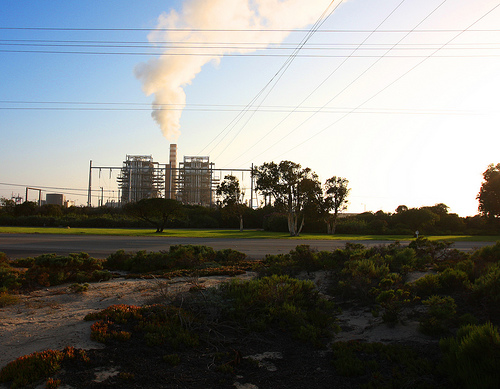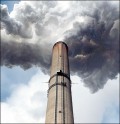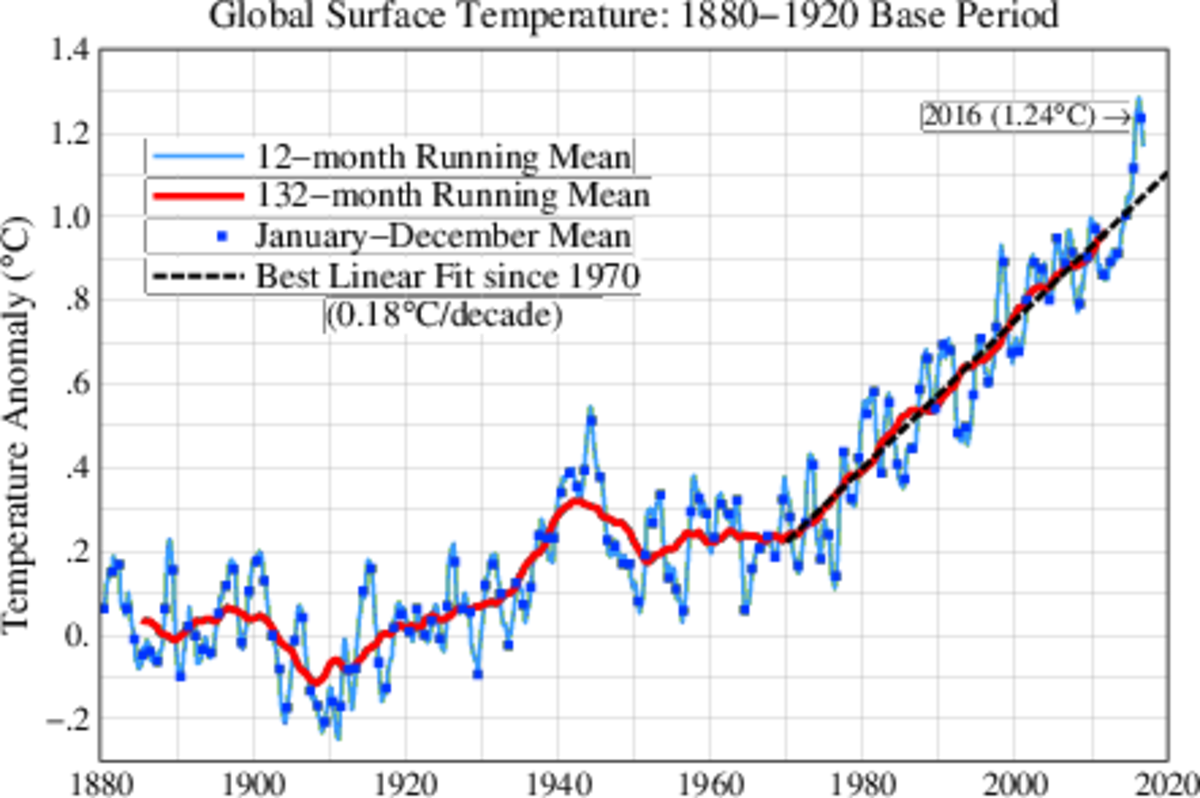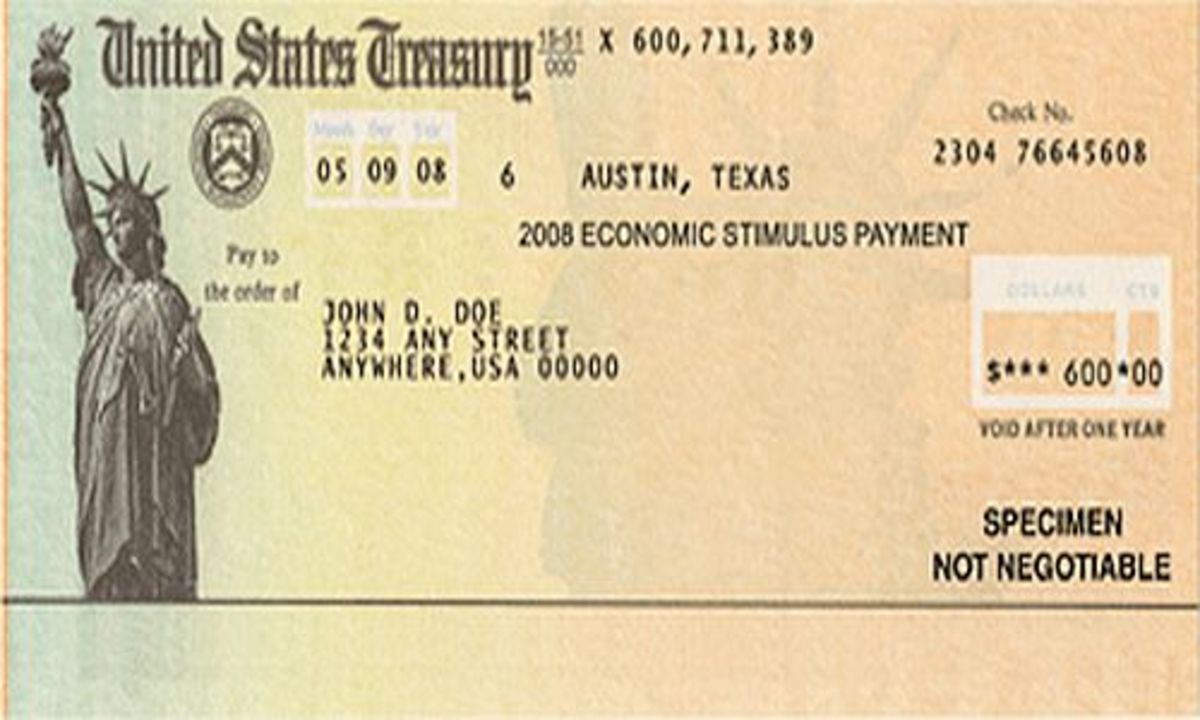Cap-and-Trade Effects on Our Nations Economy
Cap-and-Trade Plan or Scheme?
Outlined within Obama's 10-year budget plan is the widely talked about, passionately debated cap-and-trade proposal which would reduce American's greenhouse gas emissions. At first glance it doesn't seem like such a bad idea. It's when you take a closer look at the big picture, the negative impact it undoubtedly will have on America and it's economy becomes frightening. After thinking about the destructive effects this plan will have on our country, I have to wonder who the President had in mind when he decided this was the plan to ease our global warming fears and help balance our nations budget. I definitely don't think it was working class Americans.
But President Obama want's you to like his plan. He like's his plan, it's his plan. And he so desperately wants you to like it that he is willing to pay you to like it! You read right, he is planning to use a financial payout to American's in hopes of enticing them to support him in his effort to control climate change. Under the cap-and-trade system designed to reduce greenhouse gas emissions, permits to emit these gases will be auctioned off to large companies that rely on the burning of coal and natural gas for electricity. The proposal states the revenue generated from these auctions will be dispersed amongst American citizens. When I first read that, I thought 'That sounds pretty good!" But again, it's one of those things that you have to take a closer look to see the big picture.
Do the Math
I was curious to know exactly how much American's would receive from our government if the carbon credit auctions prevail. Not having the knowledge to even attempt a guess on this matter my self, I did a lot of research on the web to try and get an answer. I came across an article by Steven Milloy in FrontPageMagazine.com that really sheds some light on this 'sharing of the wealth' promised by our President. Fearful that I would botch the math, the following is taken directly from his article.
Based on past global warming legislation, like the Lieberman-Warner bill that failed in the Senate last June, a cap-and-trade plan would probably cover about 80% of U.S. greenhouse gas emissions. - about 5.8 billion tons based on a total of 7.3 billion tons emitted during 2007.
Assuming that permits are auctioned at a price of $12 per ton - a safety valve price included in past climate bills - the Obama plan would raise about $70 billion in it's first year. Given that President Obama has proposed to spend about $15 billion per year of the auction proceeds on "clean energy" projects, about $55 billion would be leftover for distribution to individuals - that is, every American with a social security number. Dividing the $55 billion among more than 300 million Americans, then, works out to be about $180 per person and $720 per family of four per year. It's not like winning the lottery, but it's better than nothing - or is it?
It's here that the plan starts to sour. By the government controlling the right to emit carbon, they are creating a scarce commodity. The basic principles of supply and demand tell us that when something is scarce, it's price goes up. American industrialism right now largely depends on coal and natural gas for energy. This right to emit is a new expense for these companies. Who exactly do you think is going to foot this bill? Do you think the companies who purchase these carbon credits are just going to eat the cost and take a cut in their profits without trying to recover that money? Of course they won't, that just doesn't make good business sense! So in turn, they will pass that cost on to you, the consumer, by increasing the price of the goods they provide you with.

The Cost to Americans
The Center on Budget Priorities and Policy has approximated the reduction in greenhouse gas emissions to result in a $750 annual increase to America's poorest families due to higher energy prices. The poorest families in America use less energy than the average American family. If that is the financial burden placed on them, imagine what the annual cost to the rest of Americans would be. The Congressional Budget Office estimated a $1,600 annual raise in the cost of living for a typical household. There are other studies that have determined this figure to be even higher. And this is only the beginning! As the government continues to reduce the total amount of emissions allowed, the cost to households will continue to substantially rise. The estimated payouts of $180 per person doesn't even begin to cover this.
The costs to Americans to cover industry fees for carbon credits will be spread over many areas that affect daily life. Along with controlling carbon emissions through the cap-and-trade system there is mention of a "carbon tax" on imported fuels and energy-intensive goods and industries, lower government subsidies for those goods and higher subsidies for those that are deemed environmentally sound as well as an energy policy reform that would affect the transportation (air, rail and road) infrastructure.
The cost of this cap-and-trade system will be passed on to consumers from the companies who have the financial resources to purchase these credits, but what about those who won't be able to afford necessary credits to continue manufacturing? What if the cost of purchasing carbon credits makes them unable to compete in the market? We could be looking at a large industrial relocation to other countries that have less regulation on carbon emissions. This would mean an incredible loss of jobs for Americans who are already experiencing an all time high in unemployment rates. There has been whispers of possible tariffs and trade barriers to impose a levy on imported goods that would equal the cost of producing them domestically. Think of the inflicted cost on exporters who rely on air transportation for their goods, such as produce and flowers, if a levy is place on aviation? Think of how the tariffs and trade barriers imposed at the border would affect importing and exporting and our Gross Domestic Product (GDP).
For those who couldn't afford to purchase a "green" car and had to rely on gasoline to fuel their automobiles instead of newer bio-fuels, the cost would be incredible. I suppose the government would impose a tax on those still driving gasoline powered cars since they weren't in compliance with his clean energy campaign, hence, another tax on the poor. A push for the increased production of ethanol, which a study by the Environmental Protection Agency's Office of Transportation and Air Quality concluded that co2 emissions reduced from burning ethanol are minimal and possibly negative, would increase the cost of corn. Not only do we as Americans eat corn, but it feeds our livestock, so there would be considerable increases in the cost of food, groceries and the cost of dining, out in addition to the cost of gasoline.
But it doesn't even stop there! Senator Inhofe described the threats that the proposed solutions to global warming would have on the travel and recreation industry alone. He stated that the plan to change climate control "is a direct threat to America's way of life." He stated that the call to decrease carbon emissions by humans would hinder our ability to fly to remote locations and that there would be few automobiles that would be capable of pulling campers, boats, jet skies, snowmobiles, and such and RV's would become a thing of the past. If this is what we allow to happen, climate fluctuations will not matter in regards to recreation because "Americans will not have the means to recreate."
The list of negative affects is unending. American life as we know it will change. The lifestyle you live will undoubtedly become unaffordable. Which brings up the potential of increased crime and depression and potential increase in suicide rates amongst Americans. Which in turn will lead to increases in insurance premiums and health care costs. The imposed solutions to global warming will have a negative ripple affect throughout every aspect of American lives. And for what? There is still no proof that human emissions of carbon dioxide are the cause of Global Warming.
Scientists Rebut Climate Crisis
There is still the question of whether or not we are indeed
experiencing global warming or just the natural cycle of the earth
warming and cooling itself. There are many scientists who believe this
is the case. Dr. William Harper, a Princeton University
Professor and former Director of Energy Research at the Department of
Energy, states that CO2 is not a poison or pollutant and is not a cause
for alarm. He and some 650 prominent international scientists disagree
with the 52 scientists who back the U.N. panel's report claiming
otherwise. He also states that CO2 is essential for life on earth. His studies show that we are just observing the earths natural cycle of warming and cooling. The earth has gone through this cycle before and there is no need for alarm. This is highly noteworthy information coming from someone who supervised all DOE work
on climate changes and who was ironically fired by Al Gore for not agreeing
with his views regarding global warming.
Alot to Think About
There is so much information between the two opposing sides to absorb. I think each American has a responsibility to themselves, fellow Americans and future generations to read the research and educate themselves. President Obama and his followers are pushing to implement climate change control procedures as soon as possible. The American Clean Energy and Security Act, also known as the Waxman-Markey Bill, passed the house in June 2009. If this bill passes the Senate, it will be only the beginning of changes to negatively affect Americans. The link above will give you more information on this bill.
Republicans have come up with the American Energy Act as opposed to The Clean Energy and Security Act. It has been coined the "all of the above" approach to our energy problems. It calls for tax incentives for improving energy efficiency as well as provides a monetary prize for the first to develop a vehicle that would reach 100 miles per gallon. It allows development of American oil to lower gas prices but recognizes that it should only be used as a bridge to developing alternative fuel sources. It seems to be the most economically reasonable solution to safeguard our nations future. If you click on the link above you can read about the bill as well as sign the petition. I encourage everyone, opposing global warming theories or not, to take the time to investigate it. Our future depends on it. Your future depends on it. Your children and grand-childrens futures depend on it.
© Anglfire693, 2009









